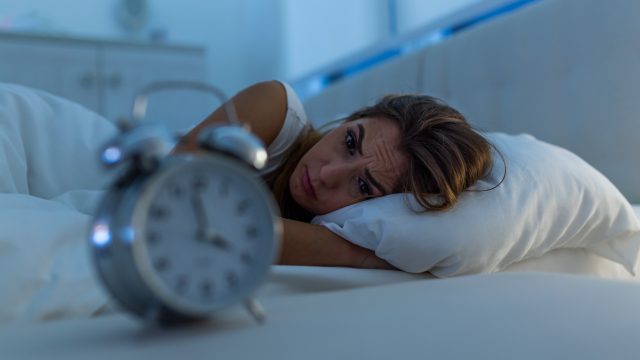5 Things You Should Never Have in Your Bedroom If You're a Light Sleeper, Experts Say
These common items could be sabotaging your precious snooze time.
According to a 2019 survey, about half of Americans consider themselves "light sleepers"—this means they wake up at the slightest change in their environment or other disturbance. It can be pretty frustrating because even soft noises or mild discomfort can totally sabotage your ability to get a quality night's rest. That's why sleep experts say you should never have certain things in the bedroom if you're a light sleeper.
"Although being a light sleeper is not ideal, it's a fairly common trait," says Phil Grau, a sleep coach and chief science officer for Blocks Nutrition. "It's crucial to practice good sleep hygiene and take steps to avoid or minimize unnecessary factors that can interrupt your sleep."
Make sure to banish the following items from your bedroom, and you're bound to catch more uninterrupted Z's.
READ THIS NEXT: 7 Clothing Items You Should Never Sleep In, Experts Say.
1
Devices that emit blue light
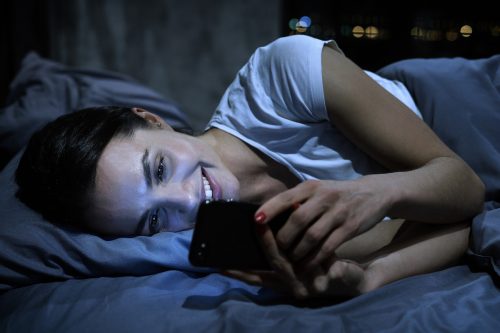
According to Mary Halsey Maddox, a pediatrician and board-certified sleep specialist, having blue light-emitting screens in your room, including TVs, laptops, and smartphones, can take a major toll on your sleep.
This is because, as studies have shown, evening exposure to blue light can suppress the production of melatonin—a hormone your body naturally produces to regulate your sleep-wake cycle and promote drowsiness.
Carlie Gasia, a certified sleep science coach and sleep health content specialist at Sleepopolis, says it's an especially bad idea to try to fall asleep to the sound of a television show or podcast.
"Light sleepers are more easily aroused by external stimuli, and noise can be a particularly disruptive factor," she explains. "Even low-level noise can cause a light sleeper to wake up frequently or have shallow sleep, which can lead to daytime sleepiness, mood disturbances, and other negative effects on overall health."
And as Grau points out, the flickering lights from television can engage and activate your brain, making it harder to drift off into a deep and restful sleep.
If you must keep your phone in your bedroom—say, because you use it as an alarm—Zwarensteyn recommends turning off notifications and dimming the light on your screen a couple of hours before bedtime.
For more wellness advice delivered straight to your inbox, sign up for our daily newsletter.
2
Polyester sheets
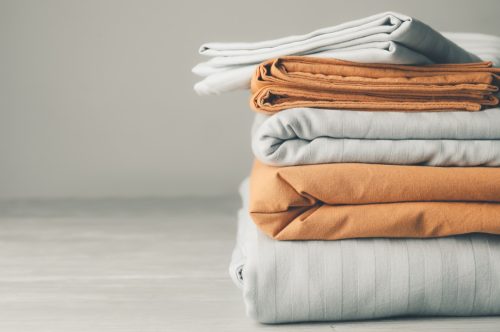
Feeling too hot or too cold can be enough to wake you up if you're a light sleeper, says Jill Zwarensteyn, a certified sleep science coach and editor for Sleep Advisor.
Since polyester sheets trap heat, they're definitely not an ideal choice when it comes to comfort. That's especially true for hot sleepers, or those who live in warmer climates without air conditioning.
Instead, consider investing in sheets that are made of breathable materials, like cotton, linen, and bamboo. Better yet, look into cooling sheets that can help to wick moisture away from the skin, thereby preventing you from getting sticky and sweaty.
3
An uncomfortable mattress

"A mattress or pillow that is too hard, too soft, or that lacks adequate motion isolation can cause a light sleeper to wake up frequently or have shallow sleep," Gasia tells Best Life.
Michael Grandner, director of the Sleep and Health Research Program at the University of Arizona, strongly suggests investing in a mattress and pillows that are as comfortable as possible.
"If your partner's tossing and turning wakes you up, avoid innerspring, latex, or hybrid mattresses as these have more bounce in them—which makes it easier to feel the other person's movements," explains Zwarensteyn. "A memory foam mattress would be ideal as this foam absorbs movement and reduces motion transfer."
READ THIS NEXT: The Best Colors to Paint Your Bedroom, According to Sleep Experts.
4
Bright lights
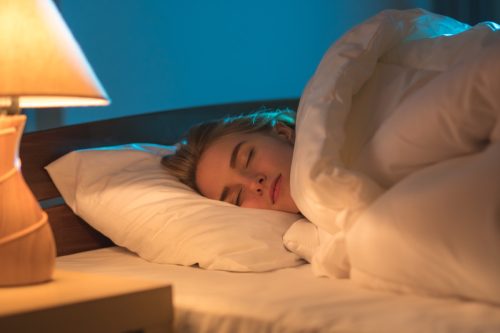
It's not just sudden noises or movement that can wake a light sleeper—bright lights can, too. That's why Grandner advises keeping your bedroom as dark as possible—not only while snoozing but also as you're preparing to hit the hay.
"If you can, avoid having any light-emitting devices like wall plug-ins," adds Zwarensteyn.
If you can't block out the streetlamp lights coming through your windows, Grandner and Zwarensteyn suggest using an eye mask or installing blackout curtains.
5
Pets
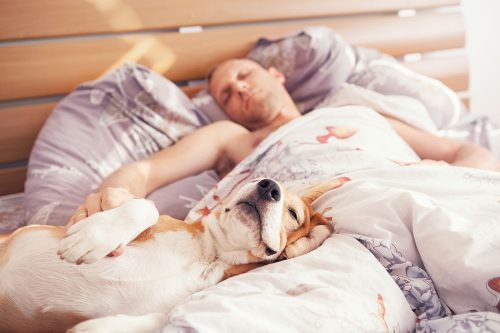
No matter how much you love having Fluffy the cat or Fido the dog sleep by your side, experts say this habit can cause serious issues for light sleepers.
For instance, Zwarensteyn notes that a pet's snoring could wake you up in the middle of the night. Or, if you tend to leave your bedroom door open, you might get jolted awake when your furry friend climbs into bed.
"If your pet has woken you in the past, try training them to sleep outside of the bedroom," says Zwarensteyn.
